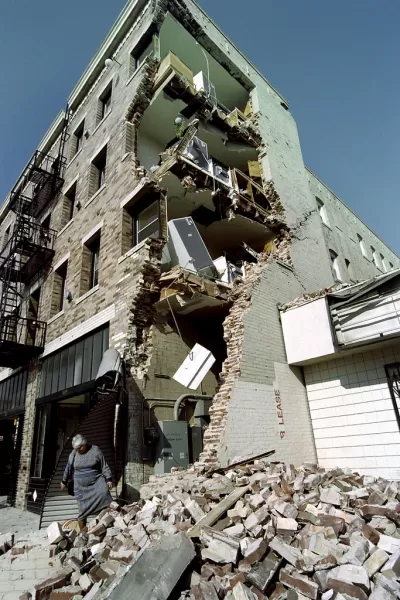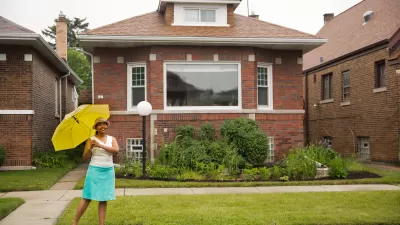Decades in the making, the Los Angeles City Council has approved regulations requiring the retrofit of vulnerable wood and concrete buildings.

Last week, the Los Angeles City Council voted unanimously to require that 15,000 buildings across the city be retrofitted to withstand the shaking caused by earthquakes, reports Rong-Gong Lin II, Rosanna Xia, and Doug Smith of the Los Angeles Times. The new regulations give property owners five years to upgrade wood buildings and 25 years to upgrade concrete buildings in order to prevent the type of building collapse that was most recently seen in the 2011 earthquake that struck Christchurch, New Zealand. The unknown remains how the retrofitting will be paid for, and by whom.
“The City Council is still mulling exactly how the retrofit costs will be shared. The law currently allows owners to increase monthly rents by up to $75 to pay for required earthquake retrofits, but both sides say they do not think Los Angeles renters can afford such a hike…
To help pay for the costs, apartment groups are looking for additional financial support, such as breaks on property and state income taxes and business license and building permit fees for owners who retrofit.”
The Times report states that the city will begin sending out notices to some 13,500 owners of wood buildings next month, with the owners of 1,500 concrete buildings being contacted at a later date. The cost to upgrade a single concrete building could approach close to $1 million.
FULL STORY: Los Angeles will have the nation's toughest earthquake safety rules

Planetizen Federal Action Tracker
A weekly monitor of how Trump’s orders and actions are impacting planners and planning in America.

San Francisco's School District Spent $105M To Build Affordable Housing for Teachers — And That's Just the Beginning
SFUSD joins a growing list of school districts using their land holdings to address housing affordability challenges faced by their own employees.

The Tiny, Adorable $7,000 Car Turning Japan Onto EVs
The single seat Mibot charges from a regular plug as quickly as an iPad, and is about half the price of an average EV.

Seattle's Plan for Adopting Driverless Cars
Equity, safety, accessibility and affordability are front of mind as the city prepares for robotaxis and other autonomous vehicles.

As Trump Phases Out FEMA, Is It Time to Flee the Floodplains?
With less federal funding available for disaster relief efforts, the need to relocate at-risk communities is more urgent than ever.

With Protected Lanes, 460% More People Commute by Bike
For those needing more ammo, more data proving what we already knew is here.
Urban Design for Planners 1: Software Tools
This six-course series explores essential urban design concepts using open source software and equips planners with the tools they need to participate fully in the urban design process.
Planning for Universal Design
Learn the tools for implementing Universal Design in planning regulations.
Smith Gee Studio
City of Charlotte
City of Camden Redevelopment Agency
City of Astoria
Transportation Research & Education Center (TREC) at Portland State University
US High Speed Rail Association
City of Camden Redevelopment Agency
Municipality of Princeton (NJ)




























